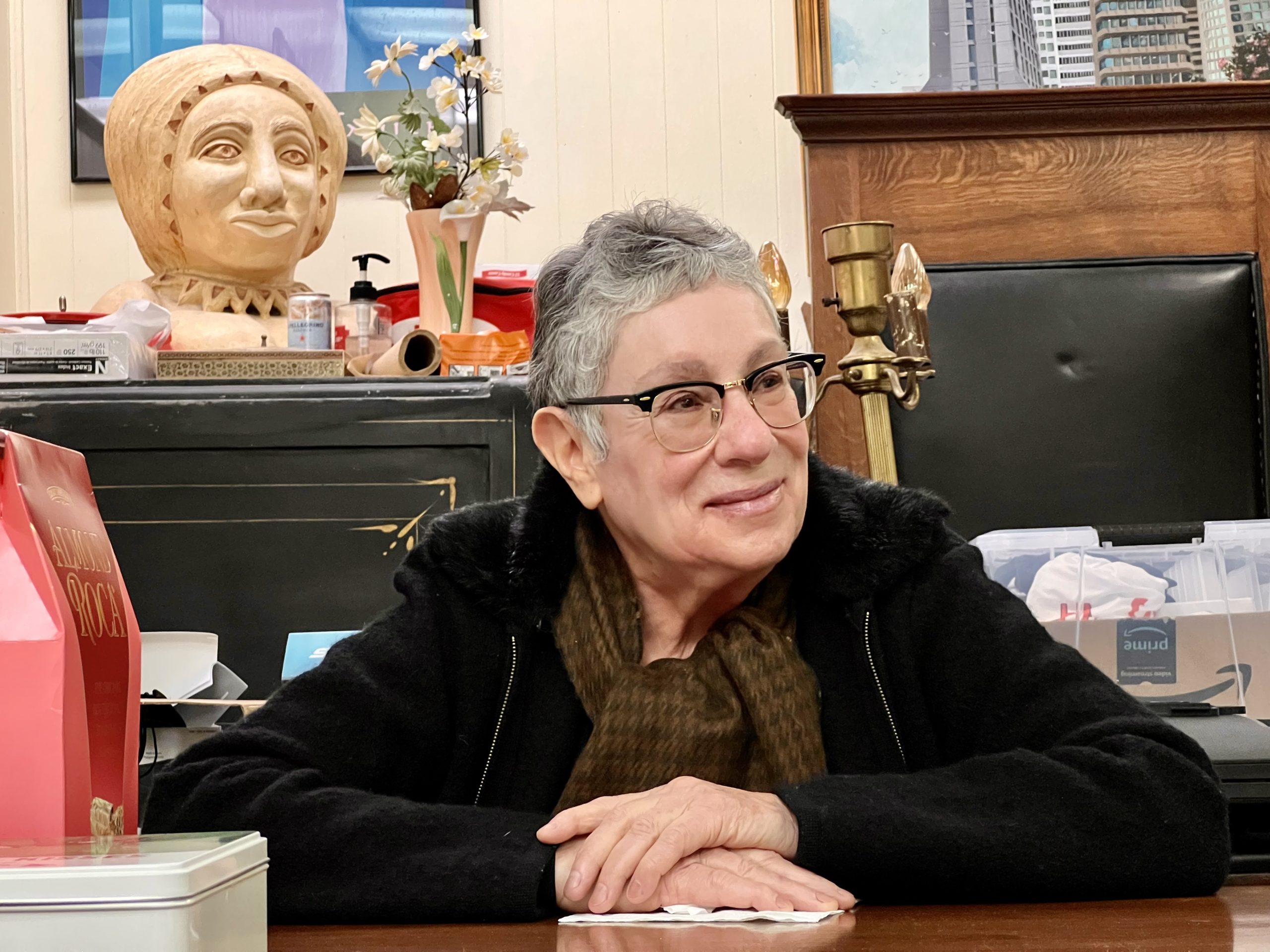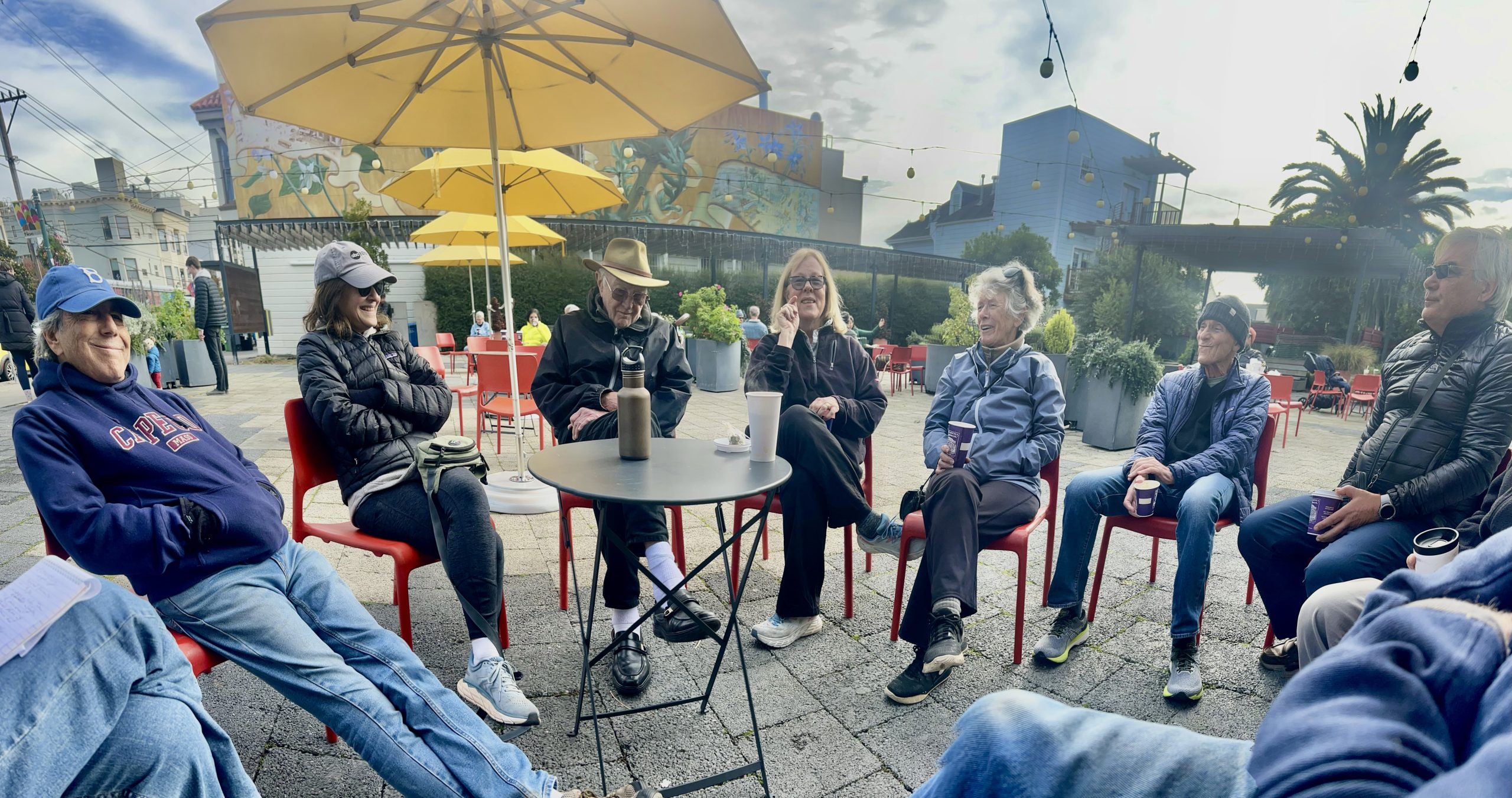Coping with Covid-19: Volunteers, donations help Meals on Wheels keep delivering to clients
For 50 years, Meals on Wheels San Francisco has been serving home-bound seniors who, even in the best of times, cannot access nutritious meals due to health issues, financial situations or both. Meal delivery also connects seniors to a network of services that allows them to live in their homes with dignity and independence. In 2019, MOWSF, which is funded by a 50/50 mix of both government contracts and private donations, delivered 2.2 million meals, serving nearly 4,500 home-bound older adults.
There is a city-wide wait list that is administered by the Department of Disability and Aging Services. San Francisco residents age 60+ can call 415-355-6700 for more information.
Have you been able to continue helping all your clients so far?
Many of our clients are already isolated, and about 70 percent live alone. By the end of the first week of March, we knew the pandemic was going to heavily impact our clients, who are at most risk for contracting the virus. Our mission had to be: Take care of our workforce so they can take care of our clients; ensure that current meal and delivery services do not experience service interruption; expand meals and delivery services to meet increased need for populations we already serve.
We have been very effective in doing this and to date, not a single older adult on our program (approximately 3,600 daily) has missed a meal.
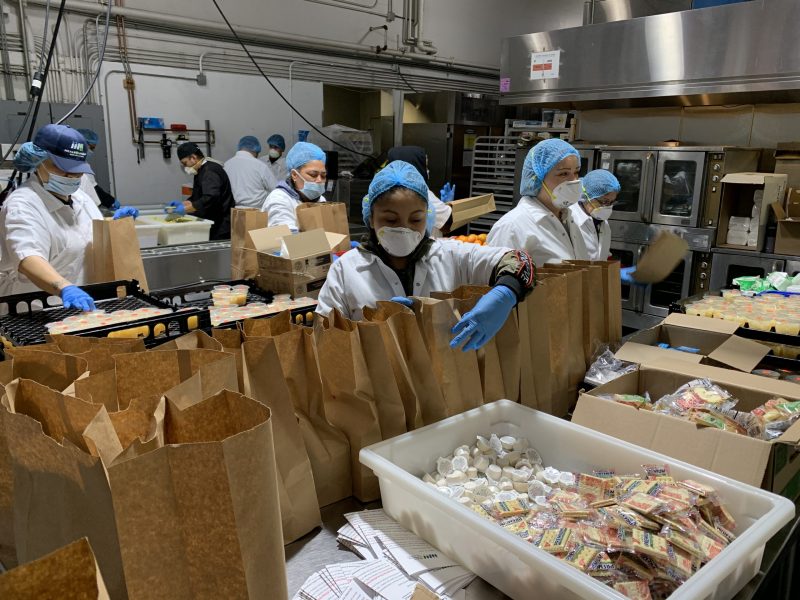
Has the need for your services increased or decreased? Why?
Yes, the need has increased. Shortly after the shelter-in-place order went into effect in San Francisco, we’ve added 200 home-bound seniors to our program – older neighbors who found themselves in real need of meals as a result of the pandemic and the need to stay indoors for health reasons. This is about a 60 to 100 percent increase in our new starts.
Many of our clients are already isolated, and about 70 percent live alone. The shelter-in-place order and advice for seniors to stay indoors as much as possible to be sheltered from possibly contracting the virus, is in itself, very isolating and leaves them with little-to-no options for nutritious meals delivered to their homes – we’re it!
Additionally, we’ve gone from producing 8,000 meals a day to 10,000 meals a day as the demand has increased for extra meals for older adults and the Navigation Centers that we serve. For reference, in 2019, we delivered 2.2 million meals to 5,000 homebound seniors. We expect with COVID-19 that the number of seniors in need of our services, will continue to grow throughout the year.
Have you had to change operations under the SIP (stay in place) and 6-feet-apart orders?
Yes, like many essential businesses, we’ve had to change the way we operate in order to provide for our clients, keeping them safe as well as keeping our staff safe. We are practicing social distancing throughout our operations – kitchen, drivers and administrative staff.
We implemented no contact deliveries in order to keep clients and drivers safe. We recently re-vamped our entire delivery route system and client menus in order to keep routes accessible for just one driver (previously two) to do and still be able to deliver the same number of meals for existing clients as well as new ones.
In tandem with this change, our social work team now does all of the safety checks by phone. The safety checks are key to our service and ensuring people are safe. While we would prefer to set eyes on each client, for now, speaking with them by phone is the only way we can do this and keep them safe. We’re also utilizing a second location near our headquarters in Bayview, for a temporary, second kitchen operations space which allows us to spread staff out more and enhance our social distancing practices. We have not made such major changes to our operations simultaneously in our 50-year history.
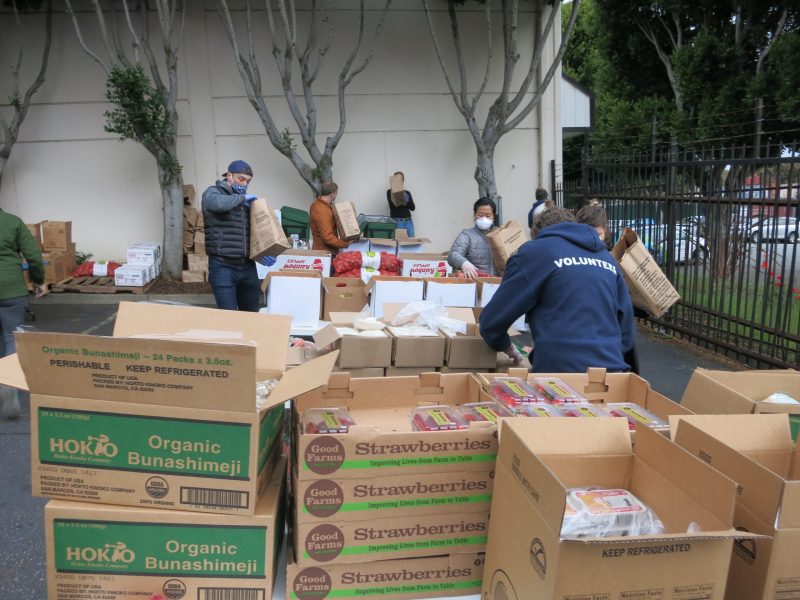
Can any of your staff work from home? What percentage (roughly) of total? What about in-office staff?
Yes, about 21% of our staff are working from home. In early March, we required all staff working in the kitchen and drivers, to wear masks and gloves. Kitchen staff already wear gloves and hair nets, pre-COVID-19, so we added the masks to the safety protocol. In addition to wearing PPE, we implemented additional safety procedures such as sanitizing all vehicles after each shift, and extra cleaning of work areas.
The N95 masks are not necessary for our work and are best saved for hospital workers and the like who are in direct contact with individuals who have the virus. We do wear cloth face masks and the paper surgical masks as a way of preventing the spread of droplets to others.
We purchase many of our supplies where available. We’ve also been fortunate to receive donations of supplies from the public, for which we are very grateful.
Have any staff members been diagnosed with Covid-19?
No employee has been diagnosed with COVID-19. However, MOWSF was alerted to the fact that a temporary worker who worked onsite at MOWSF for two separate days in March had contracted COVID-19. Upon learning of the person’s diagnosis, we conferred with the SF Department of Public Health on how to proceed and followed their guidance.
Given the temp’s role and the date this person was onsite, DPH advised us that our stringent protections and workplace practices created a low risk for exposure and we did not need to stop operations. As an extra precaution though, we asked the small number of employees who interacted with the individual to stay home (already 7 days since possible exposure) and self-quarantine for 7 days for a total of 14 days. All have since returned to work with no illnesses.
How is staff morale? What are they doing to keep their spirits up – and those of your clients?
Staff morale is really good with many people stepping up to the plate to carry out the mission during challenging times. Many of us put in long hours, but we know it’s for a good reason – older adults in need who rely on us for nourishment daily. No matter what role, everyone is super-focused on achieving the end.
Are you facing shortages of staff? If so, are you hiring, and for what positions?
When the shelter-in-place order went into effect on March 17, we took proactive measures to protect our staff, volunteers and clients. For staff and volunteers, we asked those who were in the high-risk demographic (aged 60+ and/or had underlying medical conditions) to work offsite where possible or to stay home. That decreased our workforce of staff and volunteers by about 40 percent.
But hundreds of volunteers offered up their time during the first few weeks of March to help us with meal deliveries and our Wednesday grocery-delivery program. Since then, we’ve adjusted our delivery routes to optimize more social distancing for our drivers, have hired additional drivers and moved to an on-call list for volunteer support, which is at about 800 individuals.
We are hiring. For the most current list of career opportunities at MOWSF, people can visit: https://www.mowsf.org/careers.
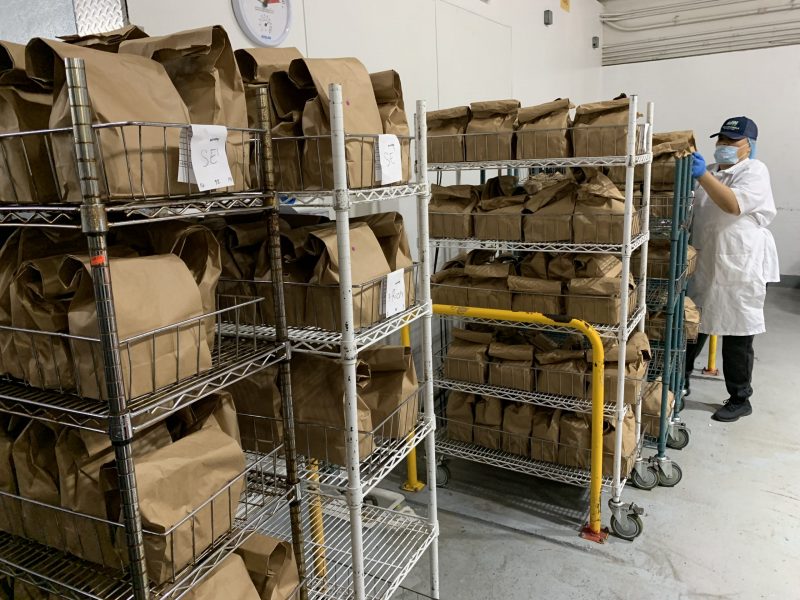
Are you facing shortages of any supplies? If so, how are you addressing that? Is there anything the public can donate?
We are very grateful for so many individuals and organizations who have donated supplies to us –everything from thousands of paper bags for packaging groceries, to surgical masks, cloth masks, supplies for making hand sanitizer, and even food to keep staff nourished and energized. We can still use more hand sanitizer and disinfectant wipes, cloth masks, and large sturdy paper bags with handles.
Financial donations are critically important as well. We’ve had to postpone our annual Star Chefs & Vintners Gala, which is normally held in May and brings in about $3 million for our operations.
Do you see any way in which this pandemic may change your operations overall in the future?
“As an organization whose core mission is to alleviate hunger, improve health and reduce isolation, this pandemic has brought the way in which we approach this mission to an unforeseen halt. No contact delivery is so antithetical to who we are so we are learning new ways to assist without crossing thresholds. However, we don’t anticipate that this will affect our long-term way of interacting with our clients, but we do believe it will be our new normal for the foreseeable months. It does challenge us to think about the ways we can reduce isolation without crossing thresholds, but human interaction for homebound individuals must be our goal.” – Ashley McCumber, CEO and Executive Director.
Has or will this pandemic have any effect on your funding?
Like many businesses and nonprofits, the pandemic has impacted our fundraising both short-term and long-term. We’ve incurred substantial expenses related to operating under our COVID-19 emergency response, as well as loss of revenue we count on to come in from the Gala by the end of our fiscal year which is June 30.
We are also in the public phase of our capital campaign and need to raise $4.7 million to finish the building of our new kitchen and food production facility, now under construction. Our kitchen is scheduled to be open by the end of this year and will significantly increase our capacity from the 10,000 meals a day we’re preparing during COVID-19 to 20,000 meals a day. We all wish this kitchen was up and running NOW as we could use its capacity and large space. People can learn more about the kitchen on our website at: https://mowsf.salsalabs.org/newkitchen/index.html
The pandemic has also affected, and in many cases, devastated, many of our supporters in the hospitality industry – restaurants, wineries and the like who may not be able to operate again once we’re all passed the crisis months. We believe 2021 is going to be a rough year, financially, for many organizations.



